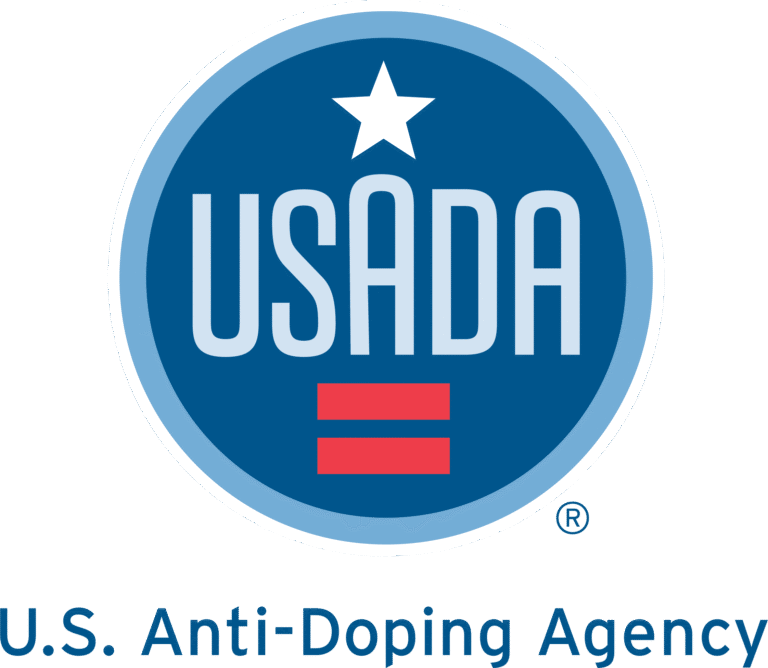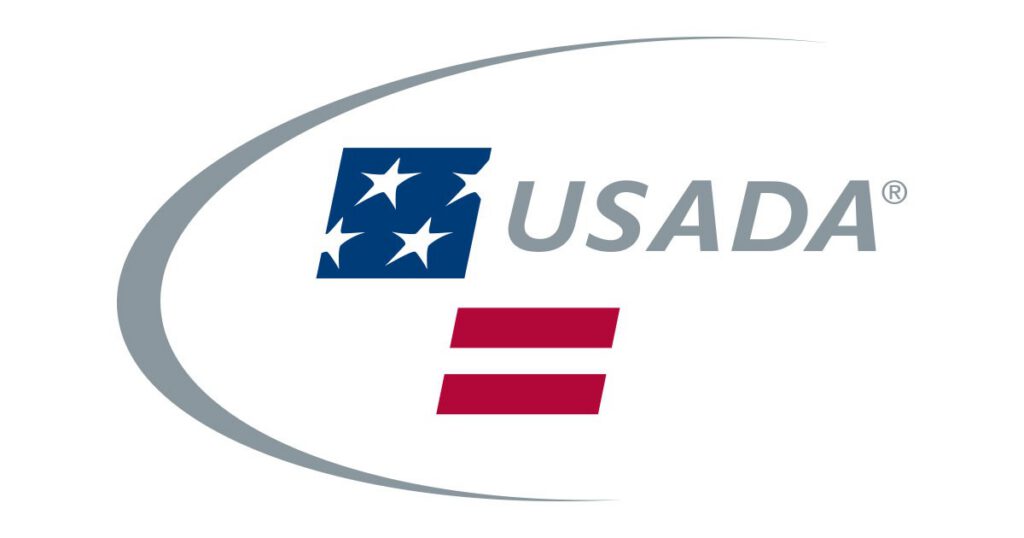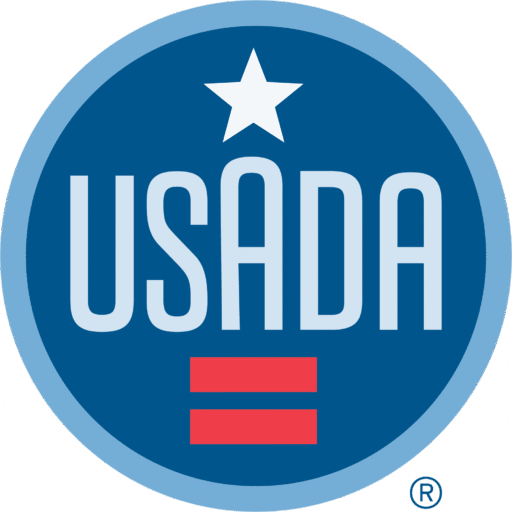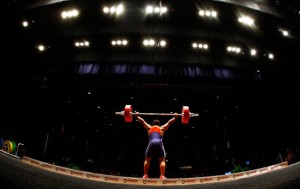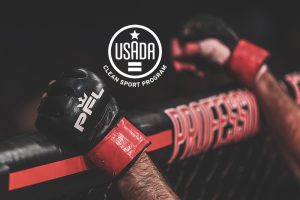Ten Olympians headline the inaugural class of the U.S. Anti-Doping Agency’s Athlete Ambassador Program, USADA Chief Executive Officer Terry Madden announced Thursday.
Four Olympic medalists – field athlete John Godina (Cheyenne, Wyo./Los Angeles), swimmer Tom Malchow (Ann Arbor, Mich.), weightlifter Tara Nott (Colorado Springs, Colo.), and speed skater Chris Witty (Park City, Utah), along with world champion and Olympic mountain biker Alison Dunlap (Colorado Springs, Colo.), Paralympic medalist Cheri Becerra (Omaha, Neb.), and two other Olympians, biathlete Rachel Steer (Anchorage, Alaska) and cross-country skier Carl Swenson (Park City, Utah), comprise the active athletes who will serve as USADA Athlete Ambassadors. In addition, retired Olympians Steve Holman (track, St. Paul, Minn.) and Jimmy Pedro (judo, Lawrence, Mass.) also work with the anti-doping organization as athlete ambassadors.
“USADA is excited to have the caliber of athlete involved with educating current and future U.S. Olympic athletes. This shows the dedication and desire for U.S. athletes to help deter doping in sport,” says Madden.
The USADA Athlete Ambassador program involves current and retired athletes contributing to the USADA educational programs, as well as talking with groups regarding the dangers and effects of doping in sport, and the importance of ethics, fair play and integrity in sport. Each active athlete signed an agreement with USADA, and is subject to additional out-of-competition testing as part of the USADA Athlete Ambassador program.
A three-time world outdoor (1995, 1997, 2001) and one world indoor (2001) shot put champion, Godina, 29, captured the silver medal at the 1996 Olympic Games and bronze at the 2000 Olympics in the shot put. He also has earned two discus (1997-98) and three shot put (1998-99, 2001) national titles, as well as winning the 1998 and 2001 Jesse Owens Award, which is presented annually to the outstanding male and female performers of United States track and field, long distance running and race walking.
“Throughout my career, I have been outspoken for the need for fair play. I believe in what USADA is doing, and excited about getting involved with the educational programs and assisting athletes in this area,” said Godina.
Malchow, 25, earned a gold medal at 2000 Olympic Games in the 200-meter butterfly after capturing a silver medal four years earlier at the Atlanta Olympics. The world’s top-ranked 200-meter butterfly swimmer has captured two world championship medals (1998, bronze and 2001, silver) and is a four-time national champion and past world record holder.
“I am participating in USADA Athlete Ambassador Program, because of my belief in preserving and preventing the Olympic image from being tarnished. The Olympics is about more than competition. It is about peace and unification of the world for two weeks. During those two weeks we must not let negative images of performance enhancing drugs or scandals overshadow what the games really stand for. We must preserve the Olympic dream.”
Nott became the initial U.S. female weightlifter, and first American weightlifter since the 1960 Olympics, to win an Olympic medal when she captured the 48-kilogram weight class at the Sydney Olympics. She was awarded the gold medal when Izabela Dragneva of Bulgaria tested positive for a prohibited substance and was ruled ineligible. A former soccer player, Nott, 29, has four national weightlifting titles, and finished among the top-10 at three world championships (1997-99).
“If USADA can help set an example for the rest of the world and dispel the rumors of cover-ups for positive tested American athletes, it can help to level the athletic playing field and then hopefully someday lead to a drug-free Olympics,” said Nott. “I think USADA’s example of no tolerance can help push the international sporting world to the same standards in the coming years. Younger athletes should realize that sports are not ‘win at all cost.’ Sports are a way to challenge yourself and test your ability. Sports should be looked at as a way to build character and to better yourself as an individual.”
Only the ninth U.S. Olympian to compete in both the Winter and Summer Games, Witty, 26, captured a gold medal (1,000m) at the 2002 Olympic Winter Games after winning a silver (1,000m) and bronze medal (1,500m) at the 1998 Olympic Winter Games. In addition, the four-time Olympian placed fifth in the 500-meter time trial (cycling) at the 2000 Olympic Games. The 1996 world sprint overall champion in speed skating, Witty has numerous world cup medals, and owns the American record in the 500m, 1,000m and 1,500m.
“I am eager to join the USADA Ambassador Program because I want to help educate athletes about the dangers of using drugs, assist with sharing information with athletes and help to clean up sport,” said Witty.
Dunlap won the cross-country world championship at the 2001 World Mountain Bike Championships in Vail, Colo. An Olympian in road cycling (1996) and mountain biking (2000), Dunlap, 32, owns national titles in the cycling disciplines of mountain biking (1999), road (1991) and cyclo-cross (1997-2001).
“I am excited to be involved in USADA’s Athlete Ambassador Program. Athletes need to be more pro-active in keeping drugs out of sport. I believe that the Olympic movement has been tarnished by drug use and because of this I am eager to work with USADA to help them clean up and restore the innocence and magic of the Olympic dream,” said Dunlap.
Becerra, 25, put herself into the history books with her performance in the summer of 1996, when she captured three medals (two silver, one bronze) at the Paralympic Games after collecting a bronze medal in the wheelchair 400 meters, a demonstration sport, at the Atlanta Olympic Games. With that accomplishment, she became the first Native American female to win an Olympic medal. At age four, Becerra lost the ability to walk when she was stricken with transverse myelitis. She began wheelchair racing in 1995. In Sydney, she set two world records and won a pair of gold medals (100, 200 meters) in her classification, and added a Paralympic record in the 400, where she captured a silver medal.
“The reason I decided to work as part of the USADA Athlete Ambassador Program was to help the young, up-and-coming athletes. I wanted to show them that hard work and dedication are the methods to improve your athletic performances, and not through the use of drugs. I have never used or even thought about using of drugs to enhance my performance,” said Becerra.
Steer is the top-ranked American in the biathlon for three consecutive years, and earned her first Olympic appearance in 2002. She has captured two national titles, in addition to being the top American international performance on the World Cup circuit.
“I am especially excited to be a part of USADA’s Athlete Ambassador Program because I firmly believe in keeping Olympic sports drug free,” said Steer. “In today’s world, athletes are not only motivated by an intense competitiveness, but there is the pressure to win from sponsors, coaches and national sport bodies. Everyone wants to know the secret to success, and some go too far in trying to achieve it. Biathlon is not well known in the U.S. and I am proud to have the opportunity to teach people about USADA as well as my own sport.”
“Every vitamin, every pill has the potential to make you test positive for a banned substance, whether or not you took it for that reason. Athletes need to be educated about how to keep their systems clean, how to communicate with USADA and why it is important to be drug free. “
Swenson competed in his second Olympic Winter Games in Salt Lake City after debuting at the 1994 Lillehammer Games. A five-time national cross-country skiing champion (1994-95, 1999), Swenson is among the top pro mountain bikers in the United States, and earned a silver medal at the 1999 Pan American Games.
“As a career athlete, it is so important to make sport clean. USADA is something that I believe in, and feel good about getting involved with the development of information and programs to help athletes now and in the future,” said Swenson.
Holman was among the premier American middle distance runners during the 1990s, and competed at the 1992 Olympic Games. A two-time national champion (1,500 and indoor mile), Holman, 32, was ranked in the top five in the world in the 1500 meters twice.
“I am participating in the Ambassador Program because I believe it is critical for athletes to have meaningful input into USADA’s anti-doping efforts,” said Holman. Athletes have particular insight into the problems of doping in sport, and can be the strongest and most visible advocates for aggressive testing measures. Unequivocal commitment to a drug-free future in sport must begin with the athletes.”
Only the second U.S. world champion in the sport of judo, Pedro, 31, also captured bronze medals at the 1991 and 1995 world championships, in addition to his bronze medal at the 1996 Olympics (71kg/156 pounds). A three-time Olympian (1992, 1996, 2000), Pedro is retired and works for U.S. Olympic Team sponsor, Monster, to help place Olympians in the job market.
“I am pleased to become part of an organization that is proactively ensuring “fair-play” within the Olympic arena. I am looking forward to working with the USADA to educate the younger generation as well as provide insight to assist the organization in its goals and effectiveness,” Pedro said.
USADA will continue to recruit athletes to its Athlete Ambassador program.
USADA is the independent anti-doping agency for Olympic sports in the United States, and is responsible for managing the testing and adjudication process for U.S. Olympic, Pan Am and Paralympic athletes. USADA is equally dedicated to preserving the integrity of sport through research initiatives and educational programs.
For more information or media inquiries, click here.


